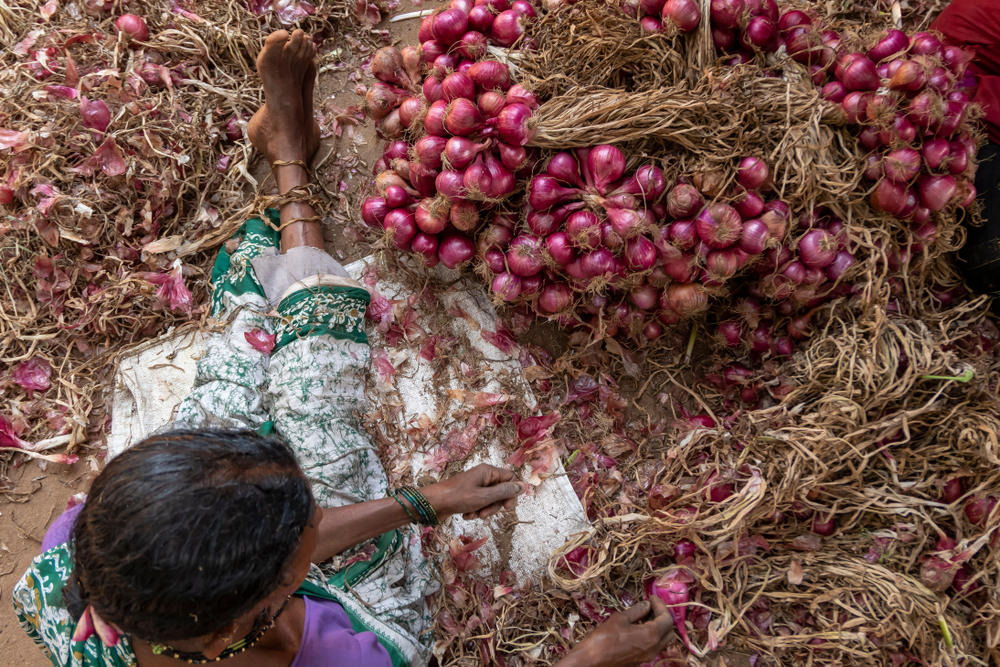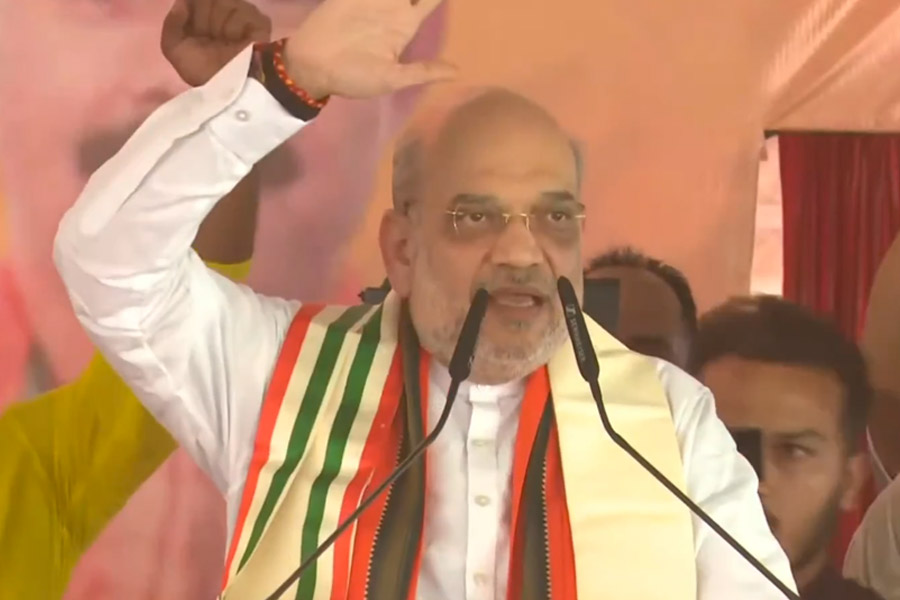Sir — It was greatly disheartening to read that nearly 800 libraries in Britain have had to shut down over the past 10 years on account of austerity cuts to budgets made by local authorities. Authors all over the country have sounded the alarm bell and called for an end to so many library closures. As someone who grew up at a time when reading in — and borrowing books from — libraries was not only a source of pleasure but also crucial to studies and examinations, it is worrisome that local governments no longer seem to see the value of keeping libraries open for young people to go and spend time in.
Sonia Singh,
Ludhiana

Onions are not the only vegetable to have become expensive Shutterstock
Short supply
Sir — The price of onions has been skyrocketing. It has crossed the Rs 100-mark for a while now. Even other vegetables such as potatoes, green peas, tomatoes, garlic, carrots and cabbage are more expensive now and the government seems to have no control over the escalating prices of such essential items. Difficult times are ahead for Indians as the growth rate of the gross domestic product has plummeted and inflation is higher than the Reserve Bank of India had predicted. Even the prices of diesel and petrol are rising, as a result of which transportation costs will also go up.
And yet, the government has overly ambitious hopes of turning India into a $5 trillion economy. This will remain a distant dream. There is a Herculean task ahead of bringing the economy back on track, and this can only happen with a series of reforms.
Amarnath Bhadra,
Howrah
Sir — The price of onions is increasing almost everyday as the supply of the vegetable from Nashik has drastically dropped. Ordinary people for whom the use of onions in daily cooking is extensive are suffering greatly. In this situation, the West Bengal government should be praised for giving a little bit relief to the aam aadmi by selling onions from the Sufal Bangla counters at Rs 59 a kilogramme.
Given the gravity of the situation, the state government should open more such counters at the earliest so that many more people can make use of this benefit.
Sourish Misra,
Calcutta
Sir — Did the people vote the Bharatiya Janata Party to power so that it could compel citizens to buy onions at Rs 150 per kg and squander away the nation’s resources in order to build bullet trains? It is an irrefutable fact that the economic situation of the country has been going from bad to worse. At this time, all of the government’s activities for so-called ‘progress’ must be put on hold and scrutinized. All unnecessary expenditures — including the hefty salaries and the numerous perks that members of parliament and legislative assemblies enjoy — must be re-evaluated. The corruption at each and every level of government expenditure must be weeded out.
Asit Kumar Mitra,
Calcutta
Sir — Batter-fried onions known as pneyaji, an age-old delicacy of the city, have fallen victim to the alarming rise in the price of the vegetable. Many shopkeepers in Calcutta have revised the sale price or brought down the amount of onions used in the preparation. Popular telebhaja shops in north Calcutta have increased the price of pneyaji to Rs 8 per piece from Rs 7 or Rs 5. Sadly, the business of selling pneyaji has been badly hit because of the price hike. Sellers are making the dish only after assessing the demand. College and university students form the bulk of the buyers of the fried delicacy, and many office-goers pick up some pneyaji on their way back home from work. In fact, pneyaji sales used to go up in the afternoons, as it adds great delight to winter evenings along with a cup of tea.
The price of the delicacy will likely come down once the cost of onions reduces. Till then, the Bengal government should supply onions at subsidized rates to pneyaji sellers in the city.
Khokan Das,
Calcutta
Sir — Whether or not the finance minister, Nirmala Sitharaman, and her family eat onions is irrelevant to a discussion on the issue of the rising price of onions. Worse, it shows how little she cares about the plight of ordinary people. Her statement was insensitive to say the least. It brings to mind the infamous statement attributed to Marie Antoinnette; at the height of the French Revolution she apparently asked of the starving peasants, “if they don’t have bread, why don’t they eat cake?”
Mohd. Zeyaullah Khan,
Nagpur
Sir — Even if Nirmala Sitharaman does not eat onions, as she claimed in Parliament, does that make the crisis of the unprecedented hike in the cost of the vegetable go away? Ordinary people continue to suffer. It is the duty of the Central government to take immediate measures to mitigate the crisis.
Arun Kumar Baksi,
Calcutta
Sir — Onions are not the only vegetable to have become expensive. Extreme heat followed by excess rainfall this year caused a drastic fall in production in India’s key agricultural areas. This will become the new normal if climate change remains unchecked. Measures to check price rise should thus include steps to protect the environment.
Soumendra Biswas,
Calcutta










